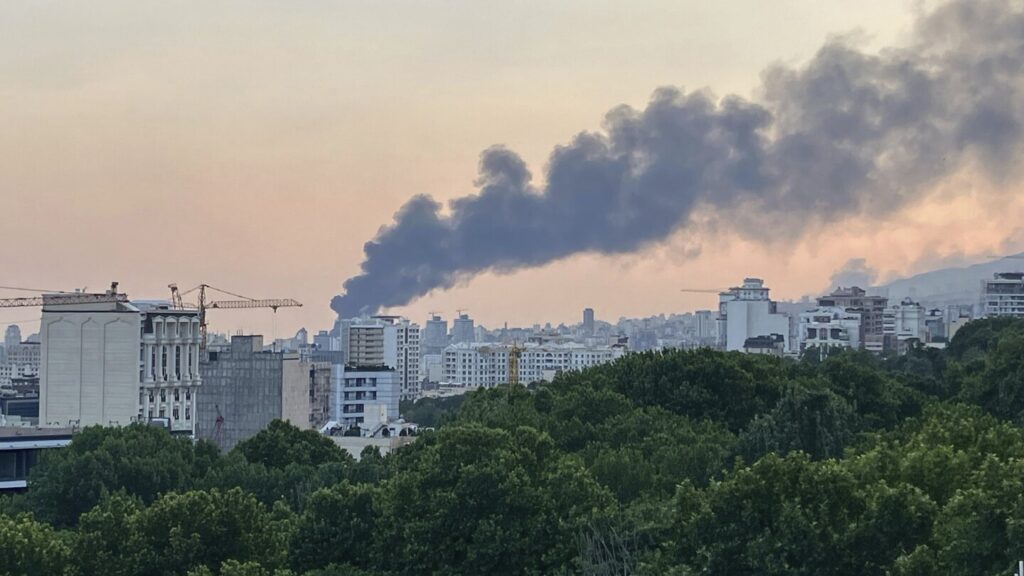
DUBAI, United Arab Emirates — As Israel intensifies its airstrikes on Iranian military and nuclear sites, Tehran is weighing alternative retaliation strategies beyond missile attacks. These strategies echo past confrontations with Israel and the United States, including disrupting maritime shipping, withdrawing from nuclear agreements, and leveraging allied militants.
Targeting the Strait of Hormuz
The Strait of Hormuz, a strategic chokepoint, is critical as it handles approximately 20% of the world’s oil trade. Located between Iran and Oman, the strait’s narrowest point is only 33 kilometers wide, with shipping lanes a mere 3 kilometers across. Any disruption could significantly impact global energy markets, affecting oil prices and consumer costs worldwide.
Since 2019, a series of attacks on ships have been attributed to Iran, following the U.S. withdrawal from the 2015 nuclear deal.
U.S. forces, including the Bahrain-based 5th Fleet, regularly navigate these waters, conducting freedom of navigation missions. These operations are often tense, as Iran views them as challenges to its sovereignty. Iranian officials have threatened to block the strait, a move likely to provoke an immediate U.S. response.
Withdrawal from the Nuclear Nonproliferation Treaty
Experts warn that Iran might cease cooperation with the International Atomic Energy Agency (IAEA) and exit the Nuclear Nonproliferation Treaty, accelerating its nuclear ambitions. While Iran claims its nuclear program is peaceful, it enriches uranium up to 60%, near weapons-grade levels.
U.S. intelligence and the IAEA believe Iran hasn’t pursued an organized military nuclear program since 2003.
Drawing parallels with North Korea’s 2003 treaty withdrawal and subsequent nuclear tests, experts caution that Iran’s withdrawal could escalate tensions, potentially drawing the U.S. into conflict.
Asymmetric Attacks by Militants
Iran could also escalate asymmetric attacks, targeting Jewish sites and Israeli missions, a tactic used in past conflicts. However, Iran’s allied groups, like Hezbollah and Hamas, have suffered significant losses following Israel’s recent military actions.
Since the October 7, 2023, Hamas attack, Iranian-backed groups in Iraq have remained uninvolved, leaving Yemen’s Houthi rebels as the only active participants.
The announcement comes as regional dynamics shift, with Iran’s traditional allies facing increased pressure from Israeli military operations.
Regional Implications and Forward-Looking Analysis
The potential for Iran to disrupt global oil supplies or withdraw from nuclear agreements poses significant geopolitical risks. Energy markets remain sensitive to developments in the Strait of Hormuz, while any nuclear treaty exit could destabilize nonproliferation efforts.
According to sources familiar with the situation, diplomatic efforts continue behind the scenes to prevent further escalation. Meanwhile, industry experts warn that any prolonged disruption in oil supplies could lead to sustained high prices, impacting global economies.
The timing is particularly significant as international stakeholders seek to balance regional stability with strategic interests. The move represents a significant shift from Iran’s previous strategies, reflecting the complex interplay of military, economic, and diplomatic factors.
As the situation unfolds, the world watches closely, anticipating Iran’s next steps and the potential ramifications for the Middle East and beyond.






